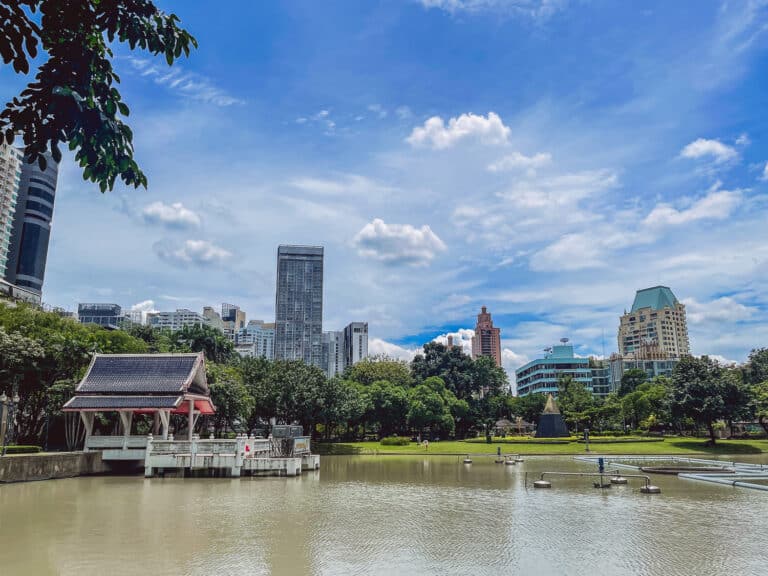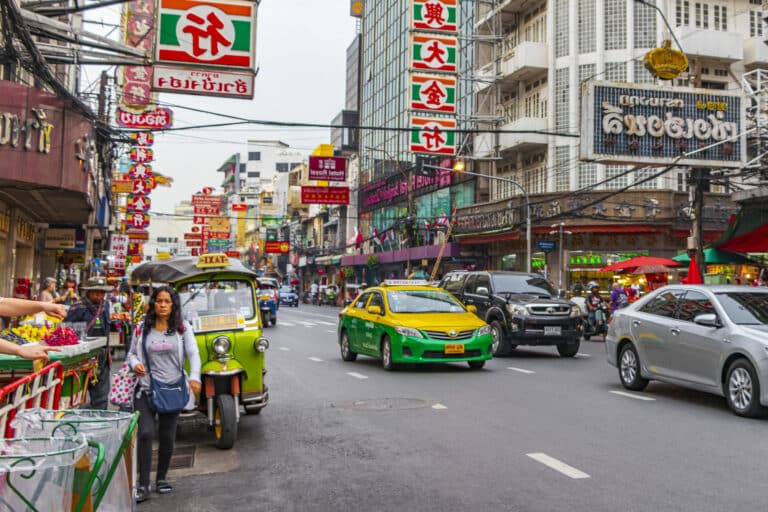Vaccinations for Thailand: What You Should Know Before Your Trip to Bangkok
Thailand is a fascinating destination that attracts travelers from all over the world with its beautiful beaches, exciting cities and cultural treasures.
But despite all the anticipation of the adventure, it is important not to neglect health precautions.
Good travel preparation includes the right vaccinations and measures to protect against country-specific diseases.
In this article you will learn everything you need to know about recommended vaccinations for Thailand, protective measures and health risks in order to enjoy your trip safely and carefree.

General preparation and basic vaccinations for Thailand
If you are planning a trip to Thailand, comprehensive health care is essential.
Make sure that your basic vaccinations such as tetanus, diphtheria, pertussis (whooping cough) and polio are up to date.
These vaccinations are part of the standard basic immunization and are mandatory in many countries, but also offer additional protection against serious infections when travelling.
Tip: Immerse yourself in Bangkok’s cultural and historical heritage. Visit the Grand Palace, the Temple of the Emerald Buddha, Wat Pho and Wat Arun.
Recommended vaccinations for Thailand in detail
- Hepatitis A: This disease, which is transmitted through contaminated water or food, is widespread in tropical countries such as Thailand. The vaccination protects you from symptoms such as fever, fatigue and jaundice associated with hepatitis A.
- Hepatitis B: Vaccination against hepatitis B is recommended, especially for longer stays or close contact with the local population, for example during volunteer or work assignments. Hepatitis B can be transmitted via blood and other bodily fluids and can lead to chronic liver disease.
- Typhoid fever: Typhoid fever is caused by contaminated food and water and is a particular risk in rural areas. The typhoid vaccination can be given by oral or intramuscular injection and offers protection against the symptoms characterized by fever, diarrhoea and abdominal pain.
- Rabies: Stray dogs and other animals such as bats can transmit rabies. A rabies vaccination is particularly useful for travelers planning trekking or outdoor activities in remote areas. Untreated rabies is almost always fatal, so prevention is crucial. If you are primarily staying in tourist areas, the rabies vaccination for Thailand is less important, as it can also be administered after a bite, for example.

Other diseases that can occur in Thailand
- Dengue fever: Dengue fever is a mosquito-borne viral disease that occurs in tropical regions such as Thailand. Typical symptoms are high fever, severe headaches, joint and muscle pain. A vaccine that offers protection against the dengue virus has been available since 2023. It is important to note that the vaccination consists of two partial vaccinations, which are given three months apart. You should therefore start the vaccination at least three months before your departure to ensure full protection.
- Malaria: There is a risk of malaria in certain border regions of Thailand, particularly in the north and northeast. The risk is lower in urban areas such as Bangkok and popular tourist destinations such as the islands. Prophylactic medication can be useful, but should be taken in consultation with your family doctor.
- Japanese encephalitis: This viral infection is also transmitted by mosquitoes and can, in rare cases, cause severe inflammation of the brain. The vaccination is particularly recommended for longer stays in rural areas or when traveling during the rainy season.
Tip: Discover Bangkok’s hidden gems on a bike tour through narrow backyards and alleyways.
How can I protect myself from mosquito bites in Thailand?
Mosquito bites are not only unpleasant, they can also transmit diseases such as dengue fever and malaria.
To protect yourself, you should consistently use insect repellent containing DEET or Icaridin, especially at dawn and dusk when mosquitoes are most active.
Wear light-coloured, long-sleeved clothing that covers your arms and legs and sleep under mosquito nets or in air-conditioned rooms to minimize the risk of bites.
Mosquito repellent plugs and mosquito coils also help to keep the insects away.

Other health risks in Thailand
In addition to infectious diseases, you should also pay attention to food and drinking water hygiene.
Avoid raw or undercooked food to reduce the risk of diarrhea.
Contact with animals should also be avoided for safety reasons in order to prevent bite injuries and the possible transmission of diseases.
Heatstroke and dehydration are other dangers that you should not underestimate, as the temperatures in Thailand can be high.
Make sure you drink enough water and use sunscreen.
Tip: Hop on a typical Thai longtail boat and explore Bangkok’s canal life. This 2-hour canal tour gives you the opportunity to experience an original part of Bangkok.
Conclusion and recommendations on vaccinations for Thailand
Good travel preparation is the key to spending your time in Thailand healthily and safely and, of course, experiencing the sights in Bangkok.
Seek advice from your family doctor or a tropical medicine practice to draw up an individual vaccination plan.
With the right vaccinations and health precautions, you can enjoy the cultural treasures and natural beauty of Thailand without any worries.
Unfortunately, you may have to pay for some or all of the vaccinations yourself – but your health should be worth it.
Last but not least: Before you leave, make sure that you have valid international health insurance that will cover your medical care if the worst comes to the worst.
Also important to know: You can find a list of renowned hospitals in Thailand in this overview from the embassy.

FAQs about vaccinations for Thailand
Finally, we will answer a few frequently asked questions about vaccinations for Thailand.
What vaccinations should I have for a trip to Thailand?
Standard vaccinations such as tetanus, diphtheria, pertussis and polio should be up to date. Hepatitis A and, for longer stays, hepatitis B are recommended.
Do I need a typhoid vaccination for Thailand?
A typhoid vaccination is recommended if you are traveling in rural areas for a longer period of time or have contact with local food and water.
Is a rabies vaccination necessary for Thailand?
The rabies vaccination is useful for planned activities in undeveloped regions, especially if contact with animals is possible. If you are primarily staying in touristically developed areas, the rabies vaccination for Thailand is less important, as it can also be administered after a bite, for example.
How does the vaccination protect me against dengue fever?
Since 2023, there has been a vaccination against dengue fever, which is administered in two doses three months apart. It protects against this mosquito-borne disease.
Is malaria a risk in Thailand?
There is a risk of malaria in some border regions, but not in urban areas. Prophylaxis should be discussed on an individual basis.
Do I need a vaccination against Japanese encephalitis in Thailand?
This vaccination is recommended for longer stays in rural areas, especially during the rainy season.
Vaccinations for Thailand: Is there a special preparation for children?
Yes, children should have all routine vaccinations and, depending on their age, receive additional vaccinations such as hepatitis A or typhoid.
When should I start my vaccinations for Thailand?
At least 4-6 weeks before the trip to ensure that all vaccinations are effective and partial vaccinations have been completed.
Can I access rabies medication in Thailand?
Medical care is available in cities and tourist areas, but may be limited in remote areas. A rabies vaccination is therefore an important preventive measure if you are traveling in undeveloped regions.
How safe are vaccinations for Thailand?
Vaccinations are safe and provide effective protection against serious diseases that occur in tropical regions. A visit to the doctor or the Tropical Institute for advice is recommended.





